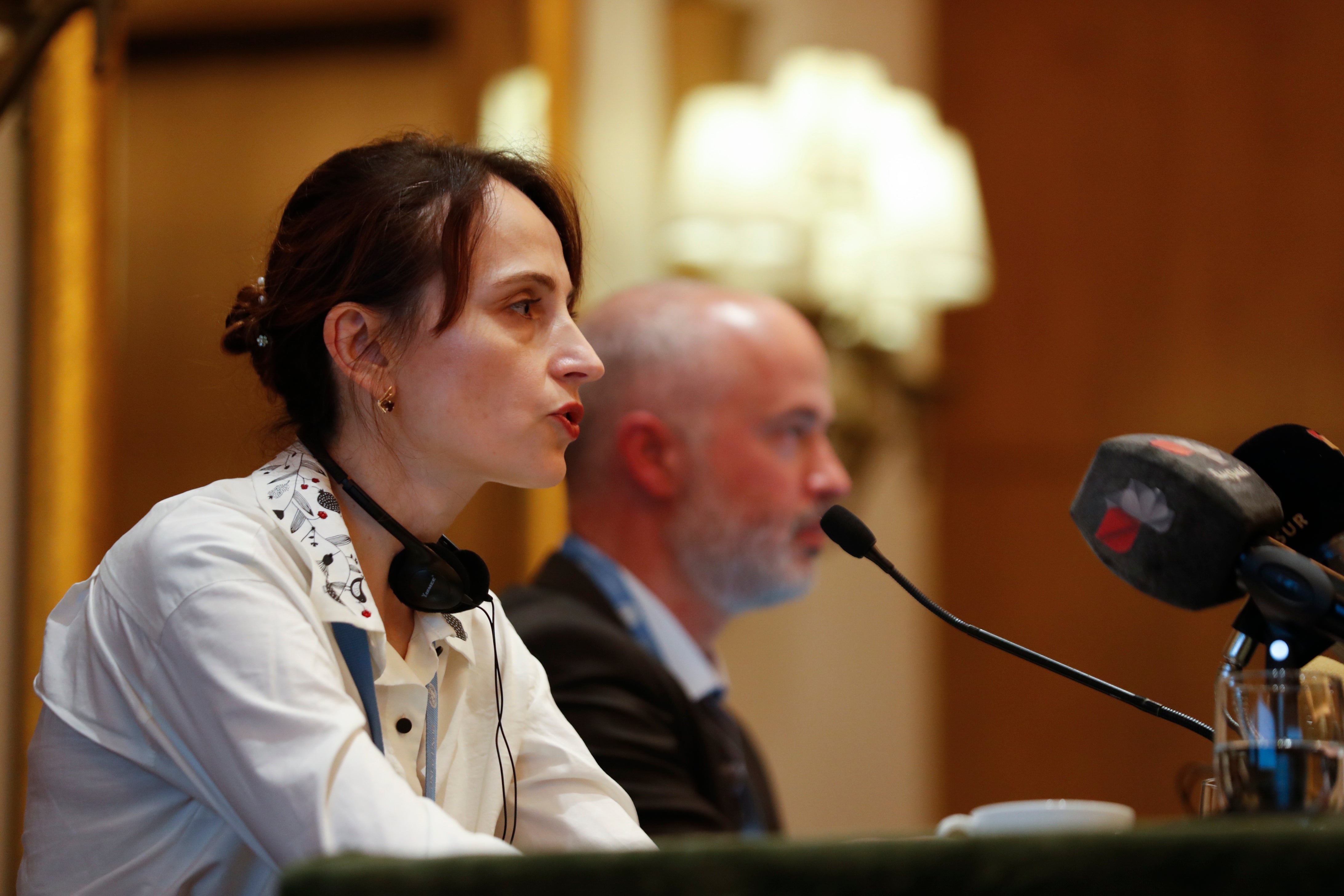UN envoy urges lifting of sanctions harming Syrian civilians
A U.N. envoy is urging Western and Arab countries to lift sanctions imposed on Syria, warning that the measures are exacerbating “the destruction and trauma” Syrian civilians have been exposed to since the conflict began 11 years ago

A U.N. envoy on Thursday urged Western and Arab countries to lift sanctions imposed on Syria years ago, warning that the measures are exacerbating “the destruction and trauma” Syrian civilians have been exposed to since the country's civil war started 11 years ago.
Alena Douhan, the U.N.'s special rapporteur on unilateral coercive measures and human rights, said the sanctions are leading to shortages in medicines and medical equipment that affect the lives of ordinary Syrians.
The statement, at the end of Douhan's 12-day visit to the war-torn country, detailed what she described as “catastrophic effects of unilateral sanctions across all walks of life in the country.”
Sanctions by the United States, the European Union and some Arab countries have been in place since 2011, after President Bashar Assad's government cracked down on protests against his rule that began as part of Arab Spring uprisings sweeping the region. Syria quickly descended into civil war.
The sanctions have targeted the oil industry, money transfers and a number of institutions and officials, including Assad. Over the years, they were expanded to target officials blamed for repression and the use of chemical weapons.
“I urge the immediate lifting of all unilateral sanctions that severely harm human rights and prevent any efforts for early recovery, rebuilding and reconstruction,” Douhan said, adding that 12 million Syrians grapple with food insecurity.
Douhan said that 90% of Syria’s population currently lives in poverty, with limited access to food, water, electricity, shelter, cooking and heating and fuel.
With more than half of Syria's vital infrastructure either “completely destroyed or severely damaged,” the sanctions are undermining efforts towards economic recovery, she added.
Once an oil exporter, Syria now relies on imports, and higher fuel costs caused by the sanctions have pushed up prices in nearly every sector. The Syrian pounds now sells at about 5,000 to the dollar on the black market, compared to 47 pounds for $1 at the start of the conflict. Hundreds of thousands have been killed, millions displaced and large parts of the country destroyed.
Some rights groups pushed back against Douhan's assessment. The Syrian Network for Human Rights said Douhan should demand that the “Syrian regime ends its violations and crimes against humanity” as a precondition for lifting sanctions.
The group said Assad's government has never launched an investigation into the killing and disappearance of tens of thousands of Syrians — and never held any official accountable.
“Therefore, we believe that more sanctions must be imposed on thousands of implicated individuals from the Syrian regime, in order to combat the culture of impunity,” it said.
Douhan said that blocking payments and refusal of deliveries by foreign producers and banks, coupled with sanctions-induced limited foreign currency reserves, “have caused serious shortages in medicines and specialized medical equipment, particularly for chronic and rare diseases.”
“No reference to good objectives of unilateral sanctions justifies the violation of fundamental human rights,” Douhan said.
____
Associated Press writer Bassem Mroue contributed to this report from Beirut.
Bookmark popover
Removed from bookmarks